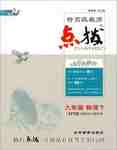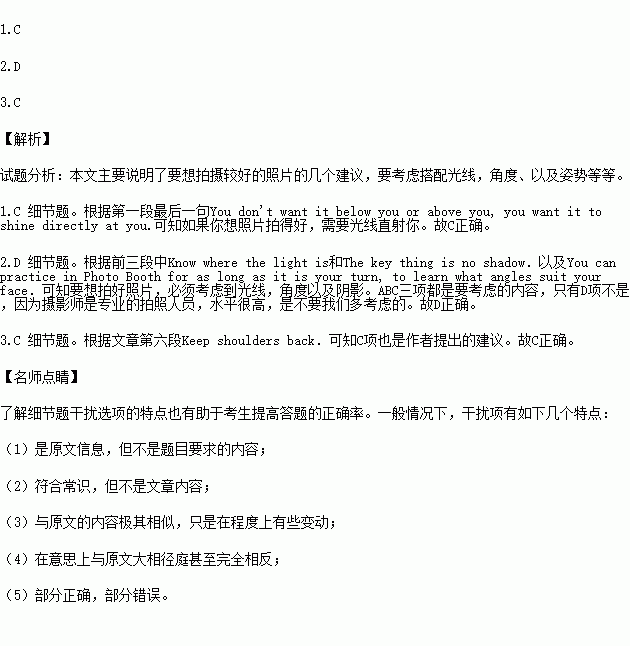题目内容
How to look good in a photo?
What should you do if you want to have a nice photo taken? Whether it's work or fun, the most important thing is lighting.If you get bad lighting, you will look bad, too.Know where the light is.You don't want it below you or above you, you want it to shine directly at you.
The key thing is no shadow.If you are being photographed outside, do it in the morning, or wait till the 2 o'clock shadow has passed.Also don't let pictures in the magazines stress you out —all the pictures are taken by great photographers.And all the faces have had pimples (丘疹,粉刺) taken out by computers.
Tip your head and learn what angles work with your face; everyone is different.So you have to learn what suits you.You can practice in Photo Booth for as long as it is your turn, to learn what angles suit your face.Tip your neck to make it look longer, make eye contact with the camera.No one can look bad if they smile.
For long legs, point one leg into center of the frame and get the photographer to shoot looking up your body.
For just leg shots, lie upside down and raise legs in the air for the best angle.And your legs will look thinner and be in better shape.
Keep shoulders back.
Always have mouth slightly open, enough to put a penny between your lips, as this will make your lips look fuller.
Lower your eyes and then look up just as shutter (快门) is clicked for full eyes.
Delete any evidence of a less than perfect photogenic moment, everyone has off days.
1.If you want to look good in a photo, the light should be ______.
A.below you B.above you
C.directly at you D.right behind you
2.According to the passage, we should consider all EXCEPT ______.
A.light B.shadow C. angles D.photographers
3.What advice does the author give on taking photos?
A.Raise legs on the wall.
B.Look down.
C.Keep shoulders back.
D.Put a penny between lips.
 特高级教师点拨系列答案
特高级教师点拨系列答案
